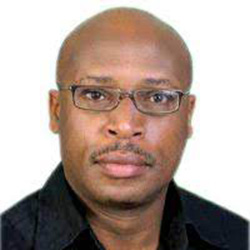

The unveiling of a plaque to commemorate the victims of the 1994 genocide against the Tutsi at the National Library of Latvia in Riga, the country’s capital city, adds another marker to the global memory.
Beyond a reminder of what happened in honour of those affected, the plaque is symbolic of how the country is entwined with the world with its tragedies and triumphs as a nation — its triumphs especially in the successes achieved 30 years on, and the voice the country commands that "never again”.
Reading about the unveiling last week, it also reminded me of how I first came to hear about the library. I remembered how riveted I was in 2014 watching on TV the spectacle of a human chain stretching two kilometres passing books hand to hand transferring them from the old library to the new National Library, which opened that year.
What I couldn’t remember hearing in the news item about the library was its moniker The Castle of Light— a sobriquet that seems to me fitting symbolism of the hope often implicit in a memorial.
I had to look it up. And it turns out that the mountain-shaped library was inspired by the Latvian mythology, specifically one about a Castle of Light and another telling of a Glass Mountain.
It is the recollection of these childhood fables of the library’s architect, Latvian American Gunnar Birkerts, that inspired its design to feature a light at the summit of the mountain-like library.


"The magic cultural ingredient was found in the fable about a sleeping princess atop a mountain of glass, whose smooth surface defeats would-be suitors attempting to scale it to reach her,” Gunnar is quoted saying.
It blends with a legend describing a mystical Castle of Light that sank in a lake only to rise from the depths of darkness. This today symbolises the wisdom regained with the rebuilt library after occupation by the Germans during the First and Second World Wars, and by the Soviets after World War Two.
It is triumph that the genocide memorial at the Latvia library now reflects, echoing international recognition with the induction of the national memorials at Nyamata, Murambi, Bisesero and Gisozi into the UNESCO World Heritage List in September last year.
Add to this recognition the 2018 designation of April 7 by the United Nations as the International Day of Reflection on the 1994 Genocide against the Tutsi.
With this, it may also be recalled that one of the major outcomes of the tragic Rwandan experience was contribution to international law with the establishment of rape and other forms of sexual violence as a constitutive act of genocide during the International Criminal Tribunal for Rwanda trials.
Away from Rwanda, however, the world remains in turmoil, where we continue to hear claims of genocide and crimes against humanity being perpetrated in the various ongoing conflicts around the world.
Last year marked the 75th anniversary of the United Nations Convention on the Prevention and Punishment of the Crime of Genocide and the Universal Declaration of Human Rights.
But the UN laments how governments and politicians around the globe are increasingly focusing on narrow, nationalist interests while eroding respect for international norms and laws, threatening to reverse decades of progress.
It observes that this global assault on human rights norms and institutions has weakened the international community’s ability to act in a comprehensive and consistent manner in the face of mass atrocities.
This means that, all too often, the effectiveness of the UN in responding to mass atrocity situations remains prisoner to partisan political interests and/or the veto prerogative of the permanent members of the UN Security Council.
The organisation notes that while there have been significant advances with regard to international justice and the principle of universal jurisdiction, the international community also continues to struggle to end impunity and ensure accountability for those who violate the principles enshrined in the Genocide Convention.
Having memorials such as that inaugurated in Latvia goes a long way to keep the issue alive and having it in a library is particularly novel.
To quote Philbert Gakwenzire, the president of Ibuka, the umbrella organization of genocide survivors' associations, speaking to this newspaper, he observed: "It's not just about putting a memorial in any location. The fact that it's in the national library, where people come to learn and engage with knowledge, makes it a powerful tool for education. It's a place where the story of the genocide will reach more people."
He makes a good point. I read a recent feature about the National Library of Latvia explaining that world-class institution, which holds over five million volumes, has capacity for more than 1,000 readers at a go and serves over 3,000 visitors a day.


